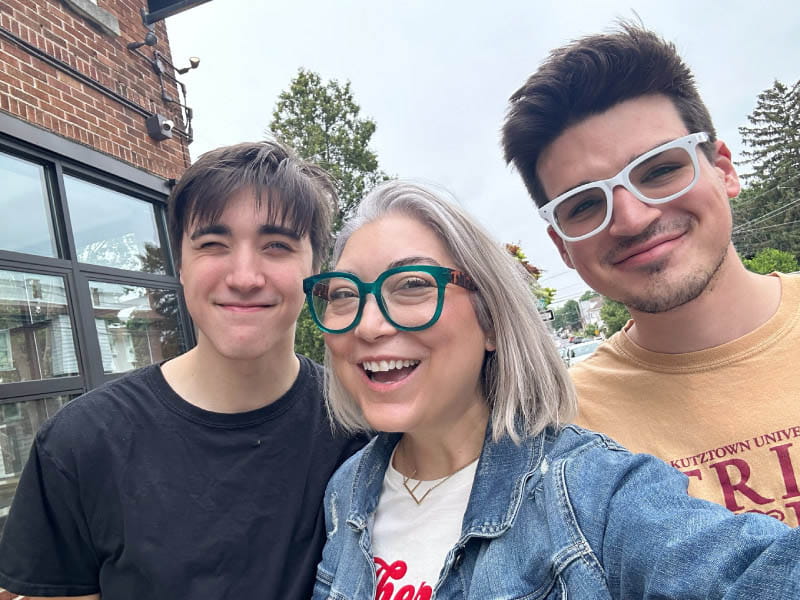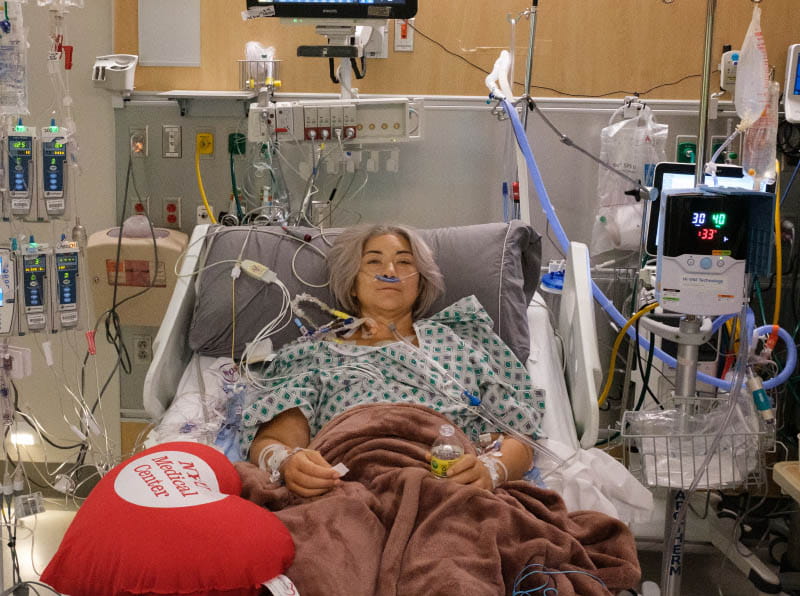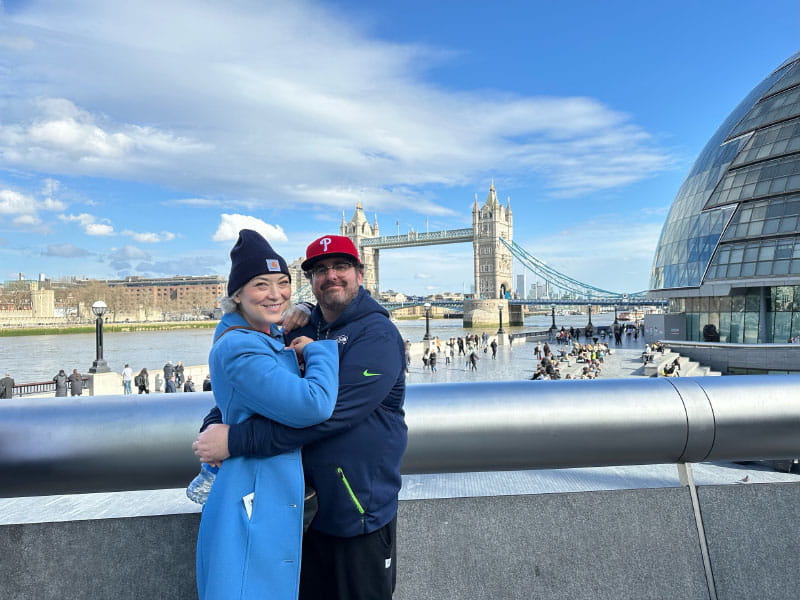'You have about 6 months to live': Woman who inherited heart problem needed transplant
By Stefani Kopenec, American Heart Association News

Editor's note: Alison Conklin was featured in 2021. Her tale has changed dramatically since then.
Having watched her mother collapse and die at age 42, Alison Conklin feared she would meet the same fate. She carried that angst with her since that day. The number 42 seemed to follow her around, be it at the deli counter or on a bib number assigned for a 5K race.
Conklin worried because she had the same heart problem as her mom.
She was 14 when she lost her mom. Only five months before, Conklin herself collapsed during a game of floor hockey, leading to her diagnosis of their shared condition: hypertrophic cardiomyopathy. HCM causes the heart wall to thicken, in turn becoming stiff and reducing the amount of blood taken in and pumped out to the body with each heartbeat.
Conklin indeed made it to 42, although managing her condition had its challenges. The scariest were the two times her heart went into an abnormal rhythm and her implantable cardioverter defibrillator went off, shocking her heart into a normal rhythm.
Then came her annual checkup during the milestone year. That's when her cardiologist said Conklin needed a new heart.
"You have about six months to live," the cardiologist said.
By the time Conklin went through all the testing required to get on the transplant waiting list, her heart condition had worsened so much that she had to wait from a hospital bed in New York City – about two hours from her husband and two adult sons in Emmaus, Pennsylvania.
Days later, she was walking laps around her floor trying to stay active when her doctor asked to speak to her. They walked back to her room. Conklin sat on the bed, the doctor seated across from her.
"We have a good heart," he said. "I think it'd be the perfect match for you."
Conklin spent the next five minutes bawling. Her first thoughts were about the donor, who was someone's son. Once she was able to speak again, she called her husband, Geoff.
When it was time for the surgery, Conklin felt a range of emotions: fear, relief, grief and hope. Nurses recalled her joking about wanting to be wheeled to the operating room under a balloon arch with confetti flying. Channeling that fun vibe, several nurses came into her room playing "Milkshake" and "Eye of the Tiger" on their phones. The group danced as they made their way to the operating room, pausing for Alison to take a photo with Geoff.
The operation took 10 hours. When Alison regained consciousness, she realized something about her new heart: It was so quiet. There wasn't the loud, awkward thudding of her old heart. Each beat felt smooth, unlike the labored beats she'd become used to. She compared it to not knowing you need glasses, then putting them on and realizing this is how you were supposed to be seeing the world the whole time.
She also no longer had an ICD. A safety net since she was 20, she'd told the medical team she was OK with them leaving it in.
"You're not going to need it anymore," a doctor said.

The surgery was in October 2022. She was home a few weeks before Thanksgiving. She had an around-the-clock medicine regimen and set multiple alarms to remind herself to take the 14 drugs that fought organ rejection and helped her heart. She traveled frequently to New York for bloodwork. After crossing the one-year anniversary mark of her transplant, her medications were reduced to five.
Alison is still recovering, both physically and mentally. She cries thinking about the donor and his family. She's continuing to make progress and marvels at the things she can do now, like walk 5 miles a day and go on hikes. Last July, at her first post-transplant cardiac stress test, the doctor said if he didn't know about her transplant, he wouldn't have believed it because her heart was so strong.
Geoff admires how Alison remains so positive; she now says "I get to" instead of "I have to." She described turning 43 as "magical." Her 44th birthday is in May after Mother's Day. She believes her mom has been by her side and that she got her new heart in a matter of days because her mom was looking out for her.
Alison has a bucket list of things to accomplish in her "bonus days," including visiting all the Major League Baseball stadiums with Geoff, who introduced her to the game when they got married. They've made it to 14 of the 30, with plans to check five more off the list this year. They also traveled to London for their 18th wedding anniversary in March, recreating photos Alison's parents had taken on their last trip there as a family. She also savors the simple pleasure of long walks with their dogs.

Her journey is a reminder, she said, to take note of "what's actually important" or "worth your time to worry about." Alison plans to spend her days with people she loves, living and having fun. And she believes she has a huge responsibility to protect the heart she was given. One day she hopes to meet the donor's family.
Until then, Alison and Geoff have a simple message for anyone inspired by their story: "Be an organ donor."
Stories From the Heart chronicles the inspiring journeys of heart disease and stroke survivors, caregivers and advocates.





